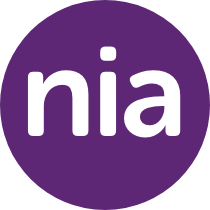nia’s IDVA service upholds the IDVA charter developed by SafeLives.
Principle 1: SAFETY
Safety of the client, their children, any other vulnerable associate, and of the IDVA is the highest priority at all times.
Principle 2: RISK
The focus of the IDVA project is to give a premium service to high risk clients.
Principle 3: DIVERSITY
The project will respect the diversity of the community in which it works and apply anti-discriminatory practice to all aspects of their work and support clients to access its services on an equitable basis.
Principle 4: DYNAMICS OF DOMESTIC VIOLENCE
Underpinning all work with clients is the understanding that domestic violence is unacceptable and an abuse of human rights. Domestic violence is a pattern of coercive and controlling behaviour where the abuser, wishing to dominate the survivor, uses violence in order to establish and maintain authority and power.
Principle 5: INDEPENDENCE
The primary role of the IDVA is to advise and support the client to ensure their increased safety. The independence of advocacy from any particular agency is necessary in achieving this aim.
Principle 6: ACCOUNTABILITY TO STAKEHOLDERS
The management of the project ensures that staff are well managed and supported in their work, the funds have been used in a transparent way that promotes sustainability, and that quality of service to the client is maintained at all times.
Principle 7: CO-ORDINATION
The project recognises that multi‐agency work is key to providing the most effective service to victims of domestic abuse, promotes a co‐ordinated response, and works to improve policies, procedures and practices of all partner agencies.
Principle 8: RESPECT
All clients and staff of the service are treated with respect, dignity and sensitivity and the service adheres to the code of ethics which upholds the seven principles of public life namely openness, honesty, integrity, accountability, selflessness, objectivity and leadership.
